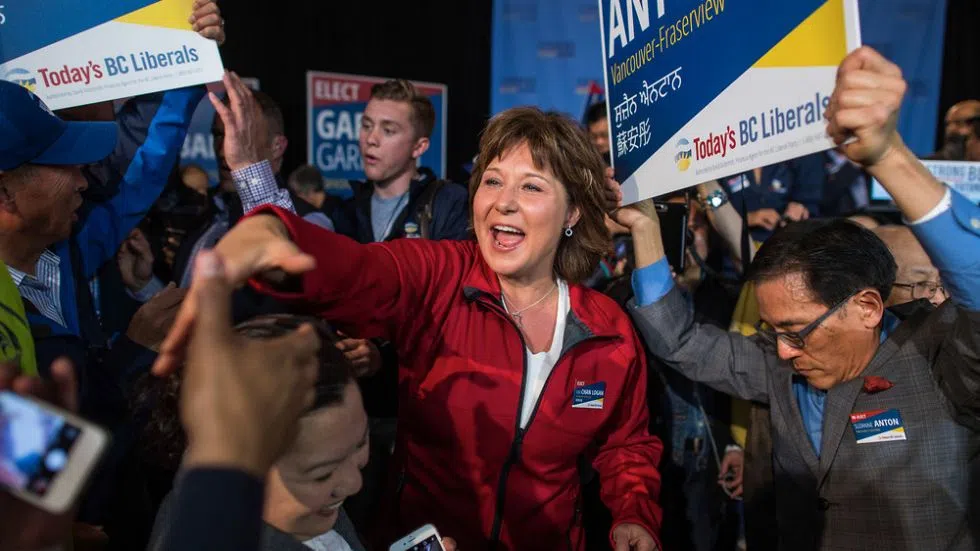
Canadian Press projects B.C. Liberals win minority government
VANCOUVER — British Columbia has its first minority government in 65 years as the Liberals squeaked out a razor-thin victory over the NDP, with the Green party holding the balance of power for the first time in Canadian history.
The Liberals won 43 seats, the NDP 41 and the Greens making a major breakthrough by picking up three seats in Tuesday’s provincial election.
At least for now, no party is able to win the 44 seats necessary to govern with a majority in the 87-seat legislature.
The NDP won the Courtenay-Comox riding by only nine votes, making a recount a certainty that will determine the difference between a minority and majority if it were to flip to the Liberals. Absentee ballots are yet to be counted as well.


